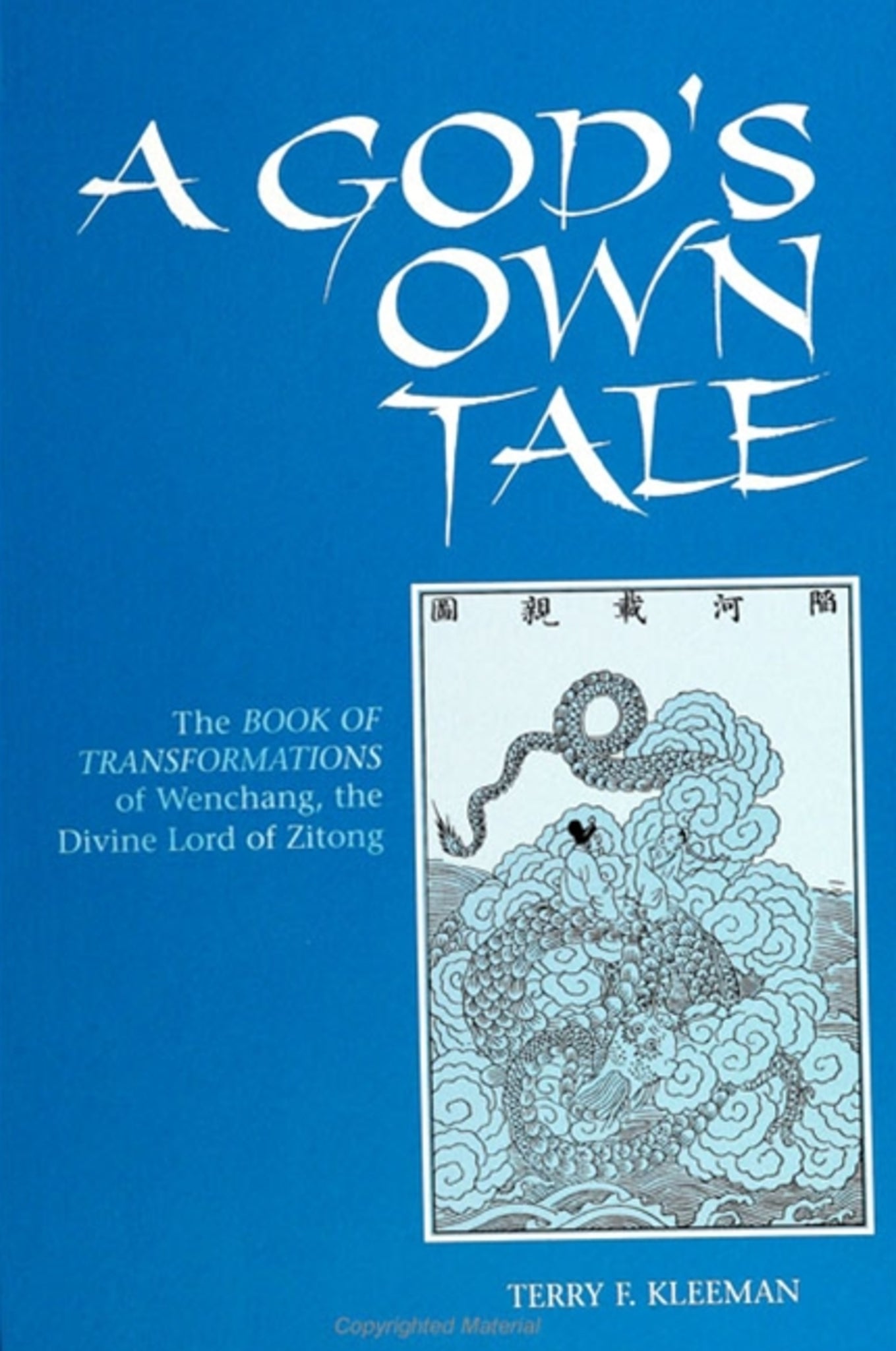We're sorry. An error has occurred
Please cancel or retry.
A God's Own Tale

Some error occured while loading the Quick View. Please close the Quick View and try reloading the page.
Couldn't load pickup availability
- Format:
-
16 August 1994

This scripture was revealed through spirit writing in 1181. It traces Wenchang's development through his many transformations culminating in his apotheosis as director of the Wenchang Palace and custodian of the Cinnamon Record that determines men's and women's fates. The god has since assumed a high position in the Taoist pantheon, has been introduced into the school system and Confucian temples, and now controls the all-important civil service examinations in China.
The text translated here provides a unique window into the religious world of Traditional China. Numerous anecdotes of good- and evil-doers reveal the ethical dilemmas facing men and women of the time, from social questions like infanticide and discrimination against women to more purely religious issues such as how evil gods are punished and how China's divergent religious traditions can be reconciled.


"It provides a thorough history of the cult of Wenchang, the patron saint of scholars, one of the deities still worshipped by the Chinese in their temples today. The Book of Transformations is a delightful and unique autobiography of the god in which he traces his various lives in the world and his various divine appointments. Kleeman's chapter by chapter commentary to the translation is jam-packed with information on customs and traditions in traditional China, those of the aristocracy and those of common folk. It is also loaded with information on the workings of Chinese folk religion and Buddhism and Taoism, and in following the incarnations of Wenchang, the reader learns a good deal along the way about the history of China from early Chou times into the fourth century of the Common Era." — Robert G. Henricks, Dartmouth College
Illustrations
Preface
Abbreviations
Introduction
Early History of the Cult
The Book of Transformations
The Cult in Late Imperial China
Translation
Traces of the Transformation
1. Primordial Mandate
2. Flowing Form
3. Born as a Commoner
4. Changing Customs
5. Investigating Antiquity
6. Worshiping the Perfected
7. Giving Repose to My Parents
8. Spirit Marriage
9. Yuanshi
10. The Tame Pheasants
11. Diverting the Stream
12. Subduing the Epidemic
13. Loving the Living
14. The Celestial Office
15. Recommending the Worthy
16. Correcting Errors
17. Returning Home in Glory
18. Consideration for the Clan
19. Returning to Nirvana
20. Mount Monarch
21. Moved to be Born
22. Serving Forebears
23. The Filial Friend
24. The Mian River
25. The White Colt
26. Recommending an Enemy for Promotion
27. Taking Pity on Orphans
28. Compassionate Instructions
29. Exhausting Loyalty>
30. A Perch in Perfection
31. The Mountain King
32. Punishments and Rewards
33. Preserving Bao
34. The Whirlwind
35. Clarifying Injustice
36. The Town of Ju
37. Saving the Drowning
38. Raining Grain
39. Diverting the Rain
40. Slaying the Bandit
41. The Northern Suburb
42. Turning Back the Fire
43. Pacifying Ju
44. The Fei Stalwarts
45. The Stone Oxen
46. The Five Wives
47. Manifesting My Numinous Power
48. The Grand Elixir
49. Badu
50. Posuo
51. Warning the Dragons
52. Mount Pheonix
53. Yufu
54. Verbal Karma
55. The Eastern Rampart
56. Ox Mountain
57. The Daunting Power of Heaven
58. Esteeming Righteousness
59. Recognizing a Recluse
60. Aiding the Upright
61. Killing Living Creatures
62. Cruel Mistreatment
63. Commiserating with the World
64. Xianyang
65. Qiong Pool
66. Liberation
67. Benevolent Administration
68. The Quick and the Dead
69. Planning
70. The Ruyi Scepter
71. Dingwei
72. The Water Bureau
73. The Cinnamon Record
Appendix: Extant Editions of the Book Of Transformations
Bibliography
Index



